Has watching a documentary stimulated you in wanting to do something to improve seafood sustainability rather than just stopping eating it[1]? Or, do you want make things better in our oceans regardless?
The Global Tuna Alliance, an independent group of retailers and tuna supply chain companies, is working to ensure tuna ultimately meets the highest standards of environmental performance and social responsibility. If interested, you can check our work here.
We have produced 5 actions that you can take to improve tuna sustainability (both environmental and ethical). For each action we explain why it is important, and provide guidance/template text to assist.
Some of the actions are pretty technical; but this is the reality of seafood sustainability.
| Action | Rationale | Guidance/Templates |
| 1. Call for the implementation of 100% observer coverage (human and/or electronic) in industrial tuna fisheries | In many tuna fisheries around the world, independent monitoring of fishing activity is not mandated which means there is much we cannot see – including many known conservation and compliance problems such as illegal fishing, misreported or unreported catch, and bycatch of endangered, threatened & protected species. What we can’t see creates risk to fish stocks, to fisheries, and to companies that purchase tuna. 100% observer coverage (human and/or electronic) provides the means to mitigate the conservation and compliance issues that put tuna stocks, ocean ecosystems, and tuna supply chains at risk. | Write to delegates of tuna regional fishery management organisations (RFMOs) urging them to implement an 100% observer coverage requirement (human and/or electronic) in all industrial tuna fisheries, including all those engaged in at sea transshipment, by 2024. |
| 2. Ask your supermarket to make a public tuna (or wider seafood) sourcing commitment that sets out their sustainability requirements. | Can ensure that tuna (or wider seafood) products are sourced from fisheries that employ science-based management plans and measures to ensure that impacts of fisheries on the environment are acceptable or are on a pathway to sustainability. | Write to your supermarket(s) asking them to commit to sourcing tuna from fisheries with a GSSI-recognized certification[2].
Where fisheries have not yet met a GSSI-recognized certification, commit to source from those fisheries on a pathway to sustainability, such as in full-assessment or in a credible and comprehensive Fishery Improvement Project. |
| 3. Ask tuna regional fishery management organisations (RFMOs) to accelerate action on comprehensive, precautionary Harvest Strategies. | Traditional fisheries management has too often proven to be slow and ineffective. It relies on frequent but uncertain assessments of fish population health, followed by lengthy, controversial negotiations. Now, fisheries managers are looking to an alternative approach, known as harvest strategies or management procedures, to provide a pre-agreed, science-based approach to decision-making. Harvest strategies shift the perspective from short-term, reactive decision-making to longer-term planning, benefitting both the fish and fishers. | Write to delegates of tuna regional fishery management organisations (RFMOs) noting:
“Harvest strategies adhering to best practices of modern fisheries management, consistent with the United Nations Fish Stocks Agreement and the Food and Agricultural Organization Code of Conduct for Responsible Fisheries. You are urged to demonstrate active support for adoption in accordance with the current timetables established for each stock at [insert RFMO].” |
| 4. Ask your supermarket to publish their policies on human rights. Policies should include a commitment to support remediation and policies should be proactively shared with their suppliers. | Will oblige retailers to effectively manage human rights risks through comprehensive due diligence processes, and proactive actions focused on their supply chains, and are reporting on them publicly. | Write to your supermarket(s) asking them for a copy of their policy on human rights and ask for clarity on whether the policy includes: Assessment of human rights risks in their supply chains at processor and vessel level; Assessment of human rights risks from recruitment at processor and vessel level; A plan which prioritises and addresses human rights risks at processor level which includes measurable progress indicators; and A plan which prioritises and addresses human rights risks on vessels which includes measurable progress indicators. |
| 5. Ask countries to ratify and implement the International Labour Organization’s (ILO) Work in Fishing Convention (no. 188) (ILO 188) | ILO 188 entitles all fishers to written terms and conditions of employment (a fisherman’s work agreement), decent accommodation and food, medical care, regulated working time, repatriation, social protection and health and safety on board. It also provides minimum standards relating to recruitment and placement and includes a mandatory requirement to have a certificate of medical fitness to work onboard a fishing vessel. | At the time of writing only 18 countries have ratified ILO188.
You can write to the Government of non-ratifying countries asking them justify why they haven’t yet ratified ILO188 and urging them to do so as soon as possible. |
[1] Which for many people dependant on seafood, isn’t a choice they can make.
[2] The GSSI provides confidence in certified seafood and promotes improvement in certification schemes.
